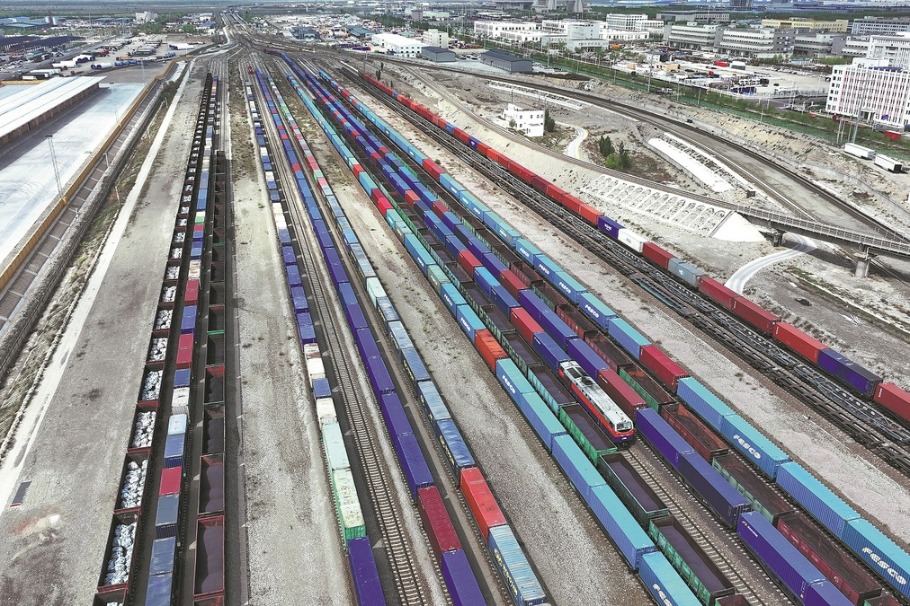Cultural exchange and mutual learning key to boosting cross-continent ties


Cultural exchange and mutual learning are essential for bolstering political and economic ties between China and Africa, said Li Hongfeng, a Chinese expert on African studies, calling on scholars from both sides delving deeper into each other's philosophical and political ideas to enhance collaboration.

"Different nations have distinct ways of thinking and cultural habits, which influence their policymaking. Understanding each other's culture can help both sides truly grasp each other's national policies, leading to mutual respect, genuine political trust and beneficial economic collaboration," Li, dean of the School of African Studies at Beijing Foreign Studies University, told China Daily.
Li highlighted that principles often cited in China-Africa relations, such as pursuing the greater good and shared interests and win-win cooperation, reflect traditional Chinese philosophy and wisdom.
She noted that similar ideas exist in African culture. "The Ubuntu philosophy, which emphasizes unity and cooperation, resonates with Chinese traditional thought and has a deep connection with the political ideals of influential African leaders like Nelson Mandela," she said.
African nations have highly recognized the principle of win-win cooperation proposed by China because it is based on equality and respect, said Li.
"China-Africa cooperation has always aligned with Africa's development needs, respecting both the continent's overall blueprint and individual country's strategies. We fully respect the African side's suggestions and initiatives on how we should cooperate together, fostering a complementary partnership that drives Africa's development," Li explained.
Citing the Belt and Road Initiative as an example, Li describes it as an inclusive cooperation model that incorporates various proposals from participating nations. "On this basis, China-Africa cooperation has significantly contributed to Africa's development and its search for the most suitable development path," she noted.
Having conducted research on Africa for over two decades and visited 11 African countries, Li shared her observations on the growing interest among Africans in learning from China's governance experiences.
She recounted a memorable encounter with a Nigerian businessman on a flight to Ethiopia. "He was reading Xi Jinping: The Governance of China and emphasized the importance of understanding China's policies for his trade work and Nigeria's development. When we asked if he had the fourth volume, he didn't know it had been published and expressed a desire to get it immediately," Li recounted.
Africans highly value learning from China's governance experiences, not to replicate them directly but to find applicable insights, said Li. "I once read an article in a major Senegalese media outlet that impressed me with its deep understanding of China's poverty alleviation strategies. It highlighted key points in China's fight against poverty including targeted poverty alleviation and government leadership, suggesting they are worth learning from," said Li.
Beyond poverty alleviation, African nations are also interested in China's grassroots governance, including land reform and agricultural policies. "These policies can offer valuable insights for addressing common challenges faced by developing countries. China's comprehensive governance experience provides a reference point that many African nations find beneficial and relevant to their own challenges," Li noted.
At the 2024 Summit of the Forum on China-Africa Cooperation, sharing governance experiences is a key theme that meets the needs of African nations, said Li, expressing hope that future exchanges and collaborative efforts would reach new heights in this field.
"The summit will inspire scholars to further explore ways to propel China-Africa cooperation to deeper levels through research and academic collaboration. Many Chinese scholars have been delving into African philosophy and political thought, which will further enhance our mutual understanding and learning," said Li.
- Xi, Tokayev attend ceremony of exchanging cooperation documents
- Zhuhai checkpoints leading to Macao, Hong Kong register 100 million trips
- What the Shenzhou XX astronauts are doing after over 50 days in space
- Beijing-Tianjin-Hebei logistics index hit 52.17% in Q1 of 2025
- Science Talk: Is Red Sun threat rumor or reality?
- 6 remain missing after fireworks factory blast in Hunan, 1 dead






































